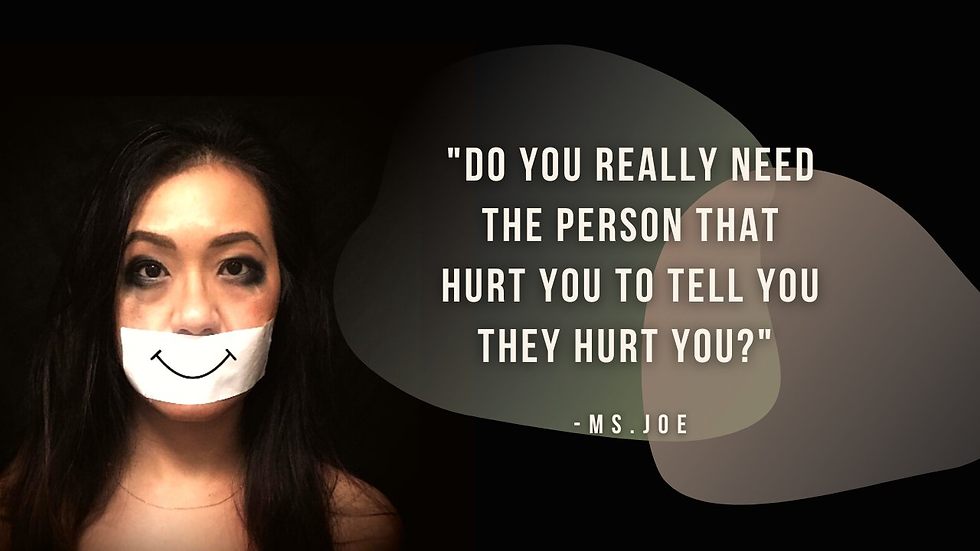Social Exhaustion
- ms. Joe

- Oct 21, 2022
- 2 min read
Updated: Oct 31, 2022
Identify and manage social exhaustion, especially as an introvert.

Social interaction can fuel some people, but the same level of interaction can be draining for others.
Navigating a socially demanding environment can lead to emotional and physical burnout due to overstimulation.
Identify Signs
Social fatigue can happen to both extroverts and introverts.
Some common signs:
feeling hopeless, helpless
losing motivation
feeling detached
feeling depressed
withdrawing
irritability
It is very easy for introverts to become overstimulated.
Being mindful and in tune with your mental health can help you recognize early signs and prevent burnout.
Early signs of burnout:
insomnia
feeling overly reactive
having low energy
foggy mind
Mindfulness
Pay attention to how you deal with overstimulation and feelings of burnout.
Keep in mind that these suggestions take time and practice.
Be gentle with yourself.
Below are some strategies that can help you avoid exhaustion.
Triggers
Take some time to identify situations and people that cause you to feel drained.
This could be from attending large events or feeling obligated to socialise with a lot of people.
Self-care
Even extroverts can feel exhausted if they schedule back-to-back social events.
Implement some self-care to recharge yourself.
Boundaries
Learn how to say “No” to events that you know will be emotionally draining and “Yes” to social events that you’ll genuinely enjoy.
Alone Time
Schedule at least 10 to 30 minutes a day for You.
Use this alone time each day to recharge and reconnect with yourself.
Setting time aside for You can help make moments throughout the day more manageable.
Meditation
Practice mindfulness. It can help with anxiety.
Listening to relaxing sounds, touching grass, and breathing exercises can also help you unwind and release buildup tension.
Journaling
Write down how you feel.
It can be a helpful and effective way to process your exhaustion.
Journaling is also another way to recognize your triggers.
Keep track of your progress to help prevent these from affecting you in the future.
Listen to your body and do what feels best.
Focus on self-care and rely on your network for personal support.
While these may seem like small steps, they can help you identify the cause of your social burnout and find practical solutions.
*This article was adapted from a Twitter thread by ms. Joe*



Comments